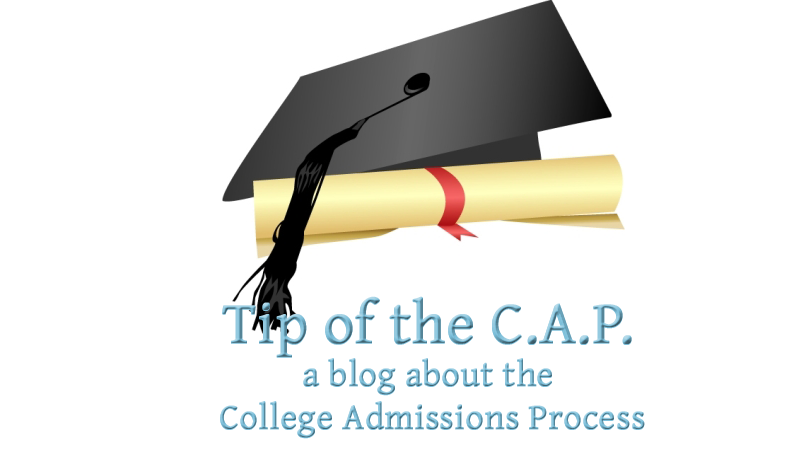The Ivy League: Beware an Untamed Obsession

Over the last few years in my capacity as a tutor and VP of Education at Method Test Prep, I've worked with and counseled enough students and parents to have witnessed a near-pathological obsession with the Ivy League. Given the hyper-competitive academic atmosphere of many Long Island schools, our students' infatuation with the League's constituent institutions is no surprise: to hopeful families with high-achieving college-bound students, places like Brown and Penn and Dartmouth represent the one sure ticket to success. But I get the distinct feeling that the draw of this revered group extends beyond career and life aspirations, and that the magnetic pull of the Elite Eight can lead students down a college application path that is poorly conceived and is thus detrimental to the prospects of admission and notions of success.
A Disclaimer
Let me first preempt any cries of hypocrisy. I myself applied to an Ivy League institution in high school. I even attended one—Harvard University—for graduate school. Several of my colleagues and closest friends were students in the Ivy League. And each year, I and my colleagues prepare many students for the SAT and ACT, the goal of which is to increase the chances of these students' admissions to Ivy League schools.
Nothing I write here, however, is meant to discourage students from aspirations of applying to and attending Ivy League colleges, or to knock or deny the academic excellence of these colleges. Rather, I am attempting to put these schools in perspective, so that students and parents may make rational decisions about where to apply.
What's In A Name?
Yale. Cornell. Columbia. What do you think of when you hear those names? Leafy campuses, geniuses, and the employee selection pool for the nation's elite professional institutions, no doubt. But there's something else, at least in students' minds: that name. The reputation of these schools is such that high-achieving students dream of the day when an admissions letter arrives in the mail, and then the day after, when they can arrive at school donning the paraphernalia of Cornell or Princeton. Parents revel in the fantasy too: how triumphant it would be to report to admiring colleagues and friends that their son or daughter was just offered a spot at one of the world's storied campuses. Admission to the League, then, seems to be the ultimate vindication—the justification for subjecting oneself to a battery of standardized tests, jammed course schedules without lunch, and extracurricular responsibilities that deny their participants time to study, eat, and sleep, and sometimes deny their parents sanity. But take it from someone who lived in that world, and had those same feelings: the novelty wears off, and quickly. While earning a spot at one of the Ivy League schools is certainly cause for celebration, you will realize that it is not a reason to seek Ivy League admission. Other people will be impressed, but then return to practical matters. Even you, the student or the parent recipient of such good news, will soon understand that the achievement is just the first small step in post-high school life.
A Guarantee?
This brings me to my next point: post-college career prospects. A résumé featuring an undergraduate degree from the Ivy League is sure to raise your profile and maybe increase your chances of getting a foot in the door to an interview. Though this is all good news, it is once again just the beginning. As an employer who has recruited and interviewed many candidates, I can promise you that a given individual's interpersonal skills, common sense, and evidence of well-developed work ethic and capability all matter more to me than the institution by which his or her degree was conferred. In fact, despite regularly receiving job applications from Ivy League graduates, Method Test Prep has hired many more non-Ivy Leaguers who, for a variety of reasons, showed far more potential to excel in our organization. And it's not only MTP that takes this view. Major organizations––from financial houses to law firms to think tanks to technology companies––always look for the best possible candidate for a position. If that individual happens to have attended an Ivy League school, so be it. But most often, Ivy League credentials are not a free pass to employment of one's choice. The same applies if one is seeking admission to a graduate or professional program. I know firsthand that even top-notch graduate program admissions committees pay far less attention to the name of an applicant's undergraduate college or university than to the research/practical experience, excellence in coursework, and professor recommendations the applicant brings to the table. When I was being recruited by several biomedical science graduate programs, I met many peers who came from large state schools or tiny liberal arts colleges I had never heard of. Clearly, it was the body of work these students had completed, and not the institution where they had completed it, that really mattered. Ditto for post-undergraduate medical, law, and business schools: armed with excellent grades and required coursework from an accredited academic institution, strong test scores (e.g., MCAT, GMAT, LSAT, or GRE), and practical experience (e.g., research, internships, or shadowing), a student will find that the name of his or her undergraduate university is of secondary importance.
The Rat Race
Immersed in a bubble of relentless ambition, Long Island students and parents find it hard not to get sucked into the artificially inflated expectations and behaviors of the herd. And so it has been, certainly for longer than I have witnessed it, an "Ivy League or bust" mentality that has dominated the applications decisions of many top students. If you're a student or parent in this situation, take a quiet moment to stop and ask yourself, "Why the Ivy League?" If you can't address this question with an answer other than "It's the best" or "I (my student) deserve(s) it for all my (his/her) hard work" or "It would be a huge achievement", it's time to rethink your (your child's) applications strategy. These are the types of answers that play into the warped perceptions I discussed above, and the ones that fuel a blind obsession with just eight of an abundance of schools that may turn out to be better choices for your (your child's) next four years.
I regularly hear from parents who, after introducing themselves and their students either in person or on the phone, share with me some version of "He's/She's going Ivy". I venture to guess that if I asked these parents why, they would give me an answer like one of the bad answers above. Parents and students often fail to realize (or refuse to admit) that there is no rationale behind this Ivy-bound goal. It's based on the assumption that if a student winds up at an Ivy League school, everything else will fall into place. This, unfortunately, is not a given. In fact, the quality of education may not match that of other schools whose professors are keener to deal with undergraduates. Classes and labs at Ivy League schools (and at other elite institutions, for that matter) are often run not by professors, but by their graduate teaching assistants who, though they may be excellent, are not the experienced professionals everyone assumes one is getting when one attends an elite college. This means that it may be harder to access professors or secure a research position as an undergraduate. Futhermore, the kinds of students the Ivy League schools attract––brilliant, motivated, well-rounded young adults––are often used to being big fish in a little pond. For these students, high school is, frankly, relatively easy. The elite college experience will present unique challenges and assaults on their egos, and will make them question their status as academic prodigies.
Just Think About It
Again, none of this is to discourage students from applying to Ivy League schools. It is merely an overture meant to encourage students to at least consider the implications of applying to and attending the highest-profile colleges. Message to all Ivy League applicants: should you be admitted, be prepared to assert yourself and push through a mass of individuals who, like yourself, are extremely bright and driven. More importantly, don't apply to Ivy League schools because you, as a top student, feel like you need to fulfill some implicit expectation. There are many colleges out there that could help you fulfill your goals just as thoroughly as, if not more than, an Ivy League school can. In the same vein, try not to put all your hopes and dreams into an idealistic, Ivy-centric application. Despite your status as one of the top students in your high school, you can be sure that there are thousands of students across the nation who have achieved what you have, and sometimes more. Keep in mind that there are limited spots for incoming students, and that even spotless academic and extracurricular credentials are far from guarantees of admission. Indeed, even to application readers, admissions decisions at elite schools can seem arbitrary, and can raise more questions than they answer.
If you have done your research, investigated programs, asked many questions, are prepared to deal with rejection if you aren't admitted or a unique challenge if you are, and are still serious about applying to an Ivy League school, by all means, do so! The schools of the Ivy League are bastions of academic prowess, and as such are great places to get an education. But don't feed the cycle of hysteria surrounding the Ivy League simply because it's the thing to do: you may be shorting yourself in the long run, limiting your potential chances for success.


